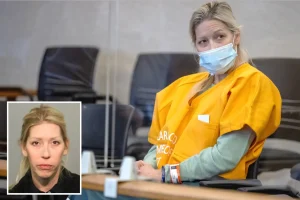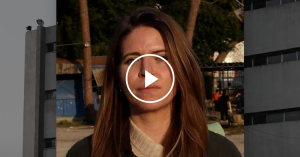Former NFL Star Adam Jones Tackles Criminal Justice Reform Alongside Unlikely Ally
Adam "PacMan" Jones, a former NFL standout known for his electrifying plays on the field and occasional controversies off it, has embarked on a new mission: advocating for criminal justice reform. He’s lending his voice and considerable platform to a cause he feels deeply passionate about, partnering with Rabbi Moshe Margaretten and the Tzedek Association to address what he sees as systemic injustices within the American prison system. Jones’s involvement brings a fresh perspective and amplified reach to a complex issue often relegated to the sidelines of public discourse. His personal experiences and colorful personality, combined with Rabbi Margaretten’s deep understanding of the legal landscape and advocacy work, create a powerful synergy aimed at driving meaningful change.
Jones’s motivation stems from witnessing the human cost of harsh sentencing practices, particularly for non-violent drug offenses. He sees a stark contrast between societal acceptance of certain substances, like ayahuasca, which is often romanticized in documentaries, and the continued incarceration of individuals for marijuana-related crimes, even as marijuana legalization spreads across the country. This perceived disparity fuels his commitment to reforming a system he believes disproportionately punishes marginalized communities. His advocacy goes beyond mere rhetoric; he’s actively working alongside the Tzedek Association to push for policy changes and raise public awareness about the flaws within the current system.
Rabbi Margaretten, a respected community activist and a key figure behind the First Step Act (FSA) of 2018, serves as a crucial partner in Jones’s endeavor. The FSA, a bipartisan bill signed into law by President Trump, aimed to reduce recidivism and overcrowding in federal prisons by offering inmates opportunities to earn sentence reductions through participation in rehabilitative programs. While the FSA represents a significant step towards reform, its implementation has faced significant challenges, including bureaucratic hurdles and inconsistencies in application, leaving many eligible inmates still languishing behind bars. Rabbi Margaretten recognizes the need for a powerful advocate to bring these issues to light and push for full and effective implementation of the law.
The unlikely pairing of a former NFL player and a rabbi might seem unusual, but their shared commitment to criminal justice reform transcends their differing backgrounds. Rabbi Margaretten views Jones’s public persona and extensive reach, cultivated through his podcast and appearances on popular sports programs like the Pat McAfee Show, as invaluable assets in their fight for reform. Jones’s ability to connect with a broad audience, combined with his genuine passion for the cause, allows their message to resonate beyond the traditional echo chambers of advocacy groups. This partnership exemplifies the potential for unexpected alliances to generate significant momentum for social change.
Their collaborative efforts focus on tackling the legacy of tough-on-crime policies that led to a dramatic surge in incarceration rates over the past few decades. Laws like the 1984 Sentencing Reform Act and the 1994 Violent Crime Control and Law Enforcement Act contributed to a massive expansion of the federal prison system, which reached its peak population in 2013. While some progress has been made in reducing mass incarceration, the United States still maintains one of the highest incarceration rates globally. Jones and Rabbi Margaretten believe that reforming sentencing practices, particularly for non-violent offenses, is essential to addressing this ongoing crisis. They advocate for a shift away from punitive measures towards a more rehabilitative approach that prioritizes reintegration into society.
Beyond advocating for new legislation, Jones and Rabbi Margaretten are also committed to maximizing the impact of existing laws like the FSA and the Second Chance Act. They are working to address the practical challenges hindering the effective implementation of these laws, such as limited halfway house capacity and administrative bottlenecks within the Federal Bureau of Prisons (BOP). They believe that ensuring the proper functioning of existing programs is crucial to demonstrating the viability of alternative approaches to incarceration and paving the way for further reforms. Their efforts include advocating for increased funding for reentry programs, improved coordination between agencies, and greater transparency within the BOP. They also hope to revive programs like the Elderly Offender Pilot Program, which allowed for the compassionate release of elderly inmates, recognizing the significant costs associated with incarcerating aging individuals.
The collaboration between Adam Jones and Rabbi Margaretten represents a powerful example of how diverse voices can unite to address complex social issues. Their combined efforts bring a unique blend of public engagement, legal expertise, and personal experience to the fight for criminal justice reform. By leveraging their respective platforms and networks, they aim to shift public perception, influence policy decisions, and ultimately create a more just and equitable criminal justice system. Their work underscores the importance of ongoing dialogue and collaboration between advocates, policymakers, and the public to achieve meaningful and lasting change. They believe that reform is not only morally imperative but also fiscally responsible, advocating for a system that prioritizes rehabilitation, reintegration, and a more compassionate approach to justice.












